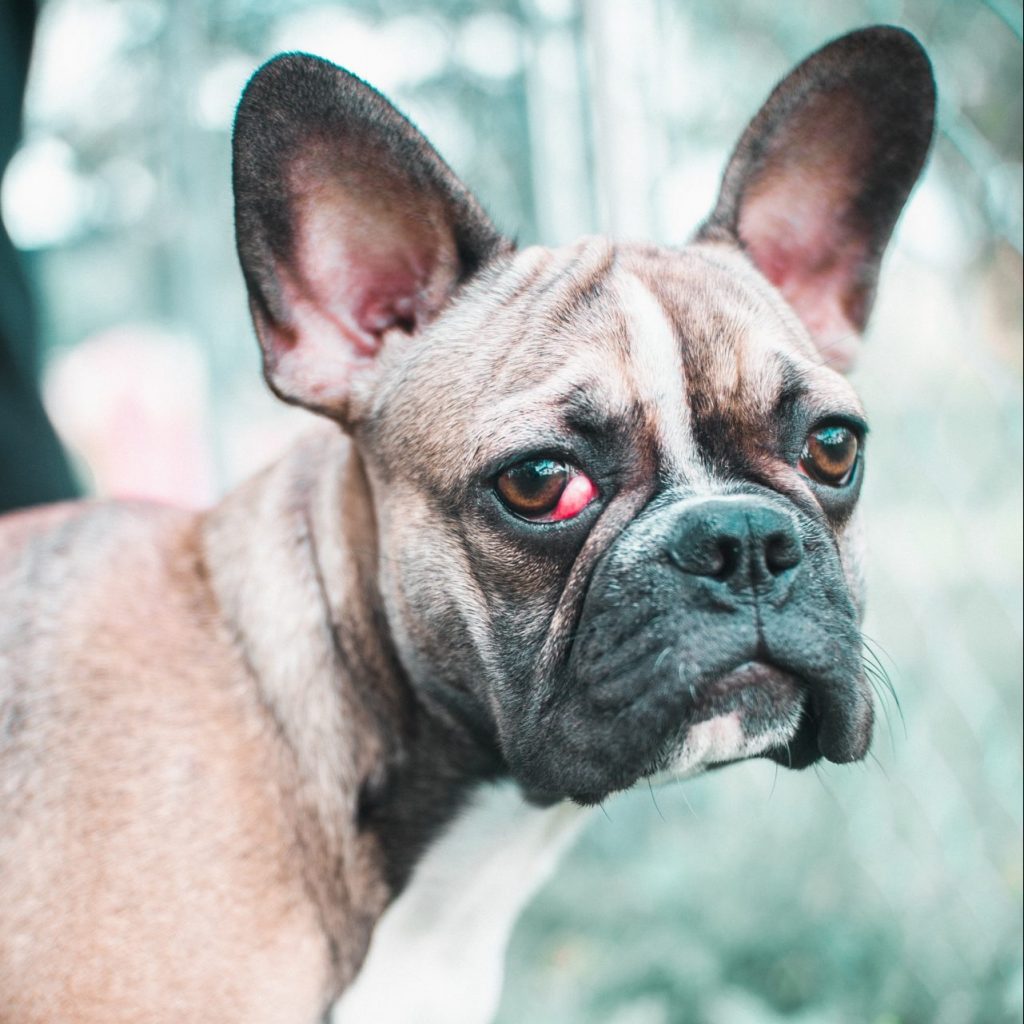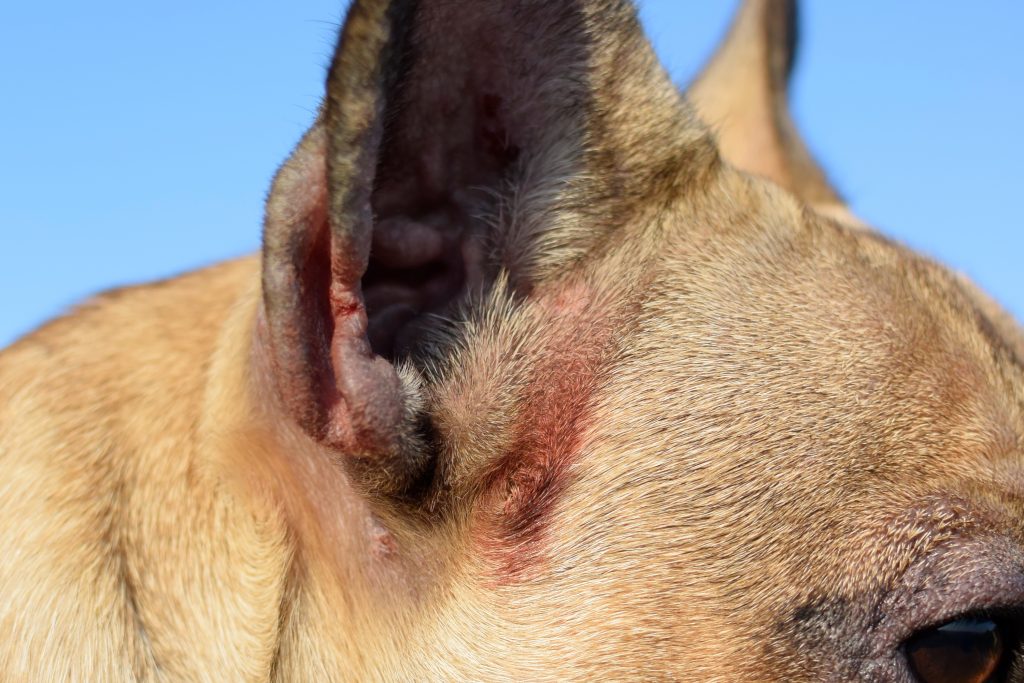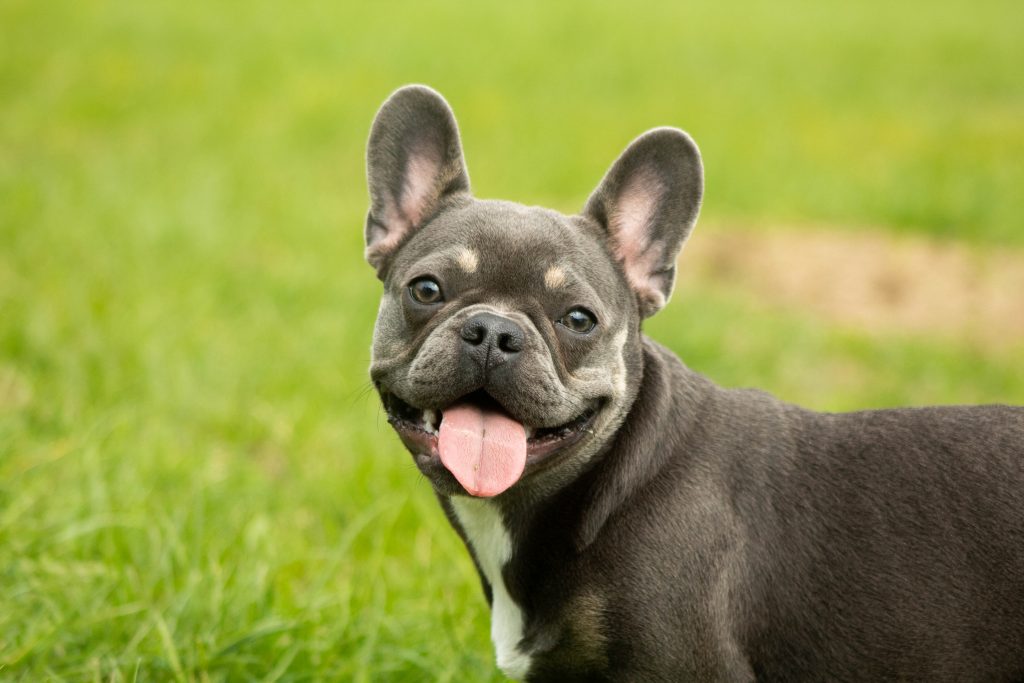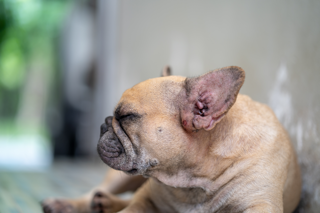French Bulldog puppies’ adorable appearance can result in health problems due to their distinct features. Drawing from my experience as a veterinarian, I have encountered numerous French Bulldogs and aim to share insights into their well-being.
This comprehensive guide addresses respiratory issues, skin conditions, and more, emphasizing the importance of awareness for current and prospective owners. Timely identification is crucial for enhancing the quality of life for these puppies, and I will provide guidance on proper care and preventive measures.
Allow me to recount the case of Bella, a French Bulldog under my care, whose early intervention significantly improved her condition. Continue reading to discover effective ways to ensure the health and happiness of your French Bulldog Puppy.
Table of Contents

Understanding French Bulldog Puppies and Their Common Health Problems
The French Bulldog is considered quite interesting due to its uniqueness in appearance and friendly nature. Nevertheless, the uniqueness in its features can be the source of French Bulldog puppy health problems.
Learn what makes these dogs special and what health problems they are prone to.
Defining the Breed: The French Bulldog Puppy
The French Bulldogs are small and muscular. They are identifiable by their short noses, wide, flat faces, and big bat-like ears. They weigh less than 28 pounds and stand 11 to 13 inches. Their strong chests and compact bodies are attractive but can also lead to health challenges.
Physical Description: A stout, muscle-bound body with a short nose, broad face, and those very remarkable ears.
Temperament: They are easy-going playful dogs that are long on love and short on energy. They fit well in many homes because they don’t have a great deal of energy.
Care: Short faces are prone to overheating. Skin folds need cleaning to avoid infections.

Common French Bulldog Puppy Health Problems
Here are some diseases that French Bulldog puppies are usually predisposed to because of their looks and genes. It is good for the owners to know such things, to be able to give better care for them:
- Brachycephalic Obstructive Airway Syndrome (BOAS)
- Skin Conditions and Allergies
- Ear Infections
- Orthopedic Issues
The loving nature of this breed has stolen many hearts. But, their health requires care and attention. All Frenchy owners should be on the lookout for these common problems to keep their pets happy and healthy.
Respiratory Issues in French Bulldog Puppies
Taking care of breathing problems is key for French Bulldog puppies’ health.
Brachycephalic Obstructive Airway Syndrome (BOAS) in Puppies
BOAS is common in French Bulldogs because of their flat faces. This condition causes trouble in their breathing system. They have small nostrils, a long soft palate, and a sometimes narrow trachea. All this makes it hard for them to breathe, more so when they’re active or it’s hot.
- Symptoms: Puppies may breathe noisily, snore, struggle to exercise, gag, breathe hard, have bluish gums, or even collapse if it’s serious.
- Diagnosis: Vets look at symptoms and check the puppy’s throat under light anesthesia. They might also use X-rays or CT scans.
- Management Strategies: Keep them at a healthy weight, and cool, and use a harness, not a collar. Some might need surgery to breathe better.
Dealing with Heat Stroke in French Bulldog Puppies
Their breathing issues make French Bulldogs get heat stroke easily. They can’t pant well to cool off.
- Causes and Signs: Watch for a lot of panting, drooling, tiredness, stumbling, vomiting, and collapsing, or seizures.
- Prevention Tips: Keep them cool, give plenty of water, and avoid hot weather exercise. Don’t leave them in cars. Cooling mats and air-conditioned rooms can help.
- Immediate Actions: If they overheat, cool them down slowly, give them water, and see a vet right away.
It’s important to know about these breathing and heat issues for your French Bulldog puppy’s health.
Eye Problems in French Bulldog Puppies
Eye problems most commonly occur in the French Bulldog as a consequence of face conformation and its genetic makeup. The commonly occurring problems are dry eye, cherry eye

Dry Eye and Cherry Eye: Symptoms and Remedies
Dry Eye (Keratoconjunctivitis Sicca): This is a condition where tears become fewer to keep the eye wet. It can make the eye red, irritated, and with a thick discharge. Left untreated, it might cause a corneal injury and a loss of vision.
- Symptoms: Eye looks dry, blinks a lot, thick discharge, and the eye gets red.
- Treatment often involves drugs to make more tears or artificial tears. Surgery is sometimes required to fix the problem.
- Symptoms: A red lump in the eye corner, too many tears, or too little if the gland doesn’t work right.
- Treatment: Surgical replacement of the gland in most cases. Removing the gland, as this could produce a dry eye, would be the very last choice.
Understanding Corneal Ulcers in French Bulldog Puppies
Corneal ulcers are very painful. They are sores that reside in the cornea, and which represent the normally transparent anterior part of the eye. They come from burns or cuts due to injury, apart from infections.
Causes: Ulcers may result from foreign objects, scratches, or not treating an eye infection.
Symptoms: Squinting, excessive tearing, redness, sensitivity to light, sometimes a visible sore on the cornea.
Treatment: Treatment depends on the severity of the ulcer. Mild ones may only need antibiotics or antifungal drops. More severe ones may require surgery. Management of pain and prevention of infection are important.
Skin Conditions in French Bulldog Puppies
The French Bulldog puppies have adorable wrinkles. However, these wrinkles can turn out to be hell for skin problems. So, proper care of their skin has to be maintained to avoid much discomfort and important issues.
Battling Skin Fold Dermatitis and Skin Infections
Moisture and debris are trapped within the skin folds of French Bulldogs. This provides a good place for bacteria and yeast to grow. Such conditions may give rise to skin fold dermatitis. It is shown by inflammation, redness, and infection.
To avoid all these problems, regularly keep the skin folds clean. Clean the skin with a soft, damp cloth. Then dry the area using a dry cloth. Sometimes a special wipe or cream can be used to prevent skin dermatitis and infections, which can lead to hair loss. Look for trouble signs such as too much scratching, redness, or a bad smell. Seek professional help early if skin fold dermatitis or infections occur.

Recognizing and Treating Allergies and Skin Issues
French Bulldogs can also get allergic to many other things such as some types of food, pollen, dust mites, and fleas, but sometimes some grooming products can also cause allergies.
Allergies can make their skin itchy and cause hives, facial swelling, and problems in the stomach.
Managing allergies starts with identifying and removing the cause. This might mean changing the animal’s diet, its grooming products, or where it sleeps.
In order to manage an allergy attack, a vet can provide antihistamines. For food allergies, he might suggest trying out a special diet in order to find out what’s causing the problem.
Skeletal and Mobility Problems in French Bulldog Puppies
Hip and Elbow Dysplasia, Patella Luxation, and Intervertebral Disc Disease are some of the common health issues in French Bulldogs.
Knowing the treating parameters and the conditions helps in handling these conditions.
Hip and Elbow Dysplasia: An Overview
Hip and elbow dysplasia are common health conditions in French Bulldogs due to their skeletal structure, which includes short back legs and a curly tail. According to the updated breed standard by The Kennel Club, efforts are being made to prioritize the health of French Bulldogs over extreme conformation that may lead to health issues, such as shorter muzzles and skin folds.
Hip and elbow dysplasia, both of which are addressed in the breed standard, are conditions where the hip joint and elbow joint grow in an abnormal way, causing pain, stiffness, and difficulty in movement. These conditions can be genetic but can also worsen with fast growth, being overweight, or wrong types of exercise. Additionally, French Bulldogs are prone to dental problems due to their shorter faces and crowded teeth, making it important to regularly monitor and care for their dental health.
However, due to their unique skeletal structure and potential for genetic health issues, French Bulldogs may be at a greater risk for developing hip and elbow dysplasia, as well as other health disorders, in their hip joint and elbow joint, putting them at a greater risk for discomfort and mobility issues.
Management consists of changes in lifestyle and physical therapies according to the severity. Surgical procedures include:
- Juvenile Pubic Symphysiodesis
- Double or Triple Peljson Osteotomy
- Total Hip Replacement
- Femoral Head Ostectomy
Elbow Dysplasia is a kind of elbow disease same like hip dysplasia. It causes pain and problems with moving. This one is tricky because of the very unique body shape of French Bulldogs, and it could come from both genes and the environment.
Management of weight, dietary changes, and sometimes surgery could help with the condition. Though notorious for elbow dysplasia as it is hard to undertake surgery.
Dealing with Patella Luxation and Intervertebral Disc Disease
Patella Luxation means the kneecap moves out of its place and causes pain with limping. Dealing with Patella Luxation and Intervertebral Disc Disease is important for the health of your French Bulldog. Intervertebral Disc Disease (IVDD) means there is a problem with the disc in the spine, specifically the spinal cord, and causes a lot of pain and problems with nerves, even paralysis. Treatments could vary from physical therapy and controlling pain to surgery in severe cases.
Diagnosis, Treatment, and Prevention
Vets diagnose these problems with an examination and various scans, including X-rays. They then determine proper treatment options. Common nonsurgical treatments include weight control, good levels of exercise, and pain medicine. In most severe cases, surgery may be necessary.
Avoidance would involve maintaining the right weight for the dog, feeding it right, and keeping off heavy exercises. Regular vet check-ups are very vital for the early detection and management of these conditions.
How to Ensure a Healthy French Bulldog Puppy
Welcoming a French Bulldog puppy? Gear up with a comfy setup and get ready for a journey of love, training, and care. Keep reading for all the details!

Preparing for A French Bulldog Puppy: Essential Equipment and Resources
There are a few key items you will need.
- Puppy Food: Choose quality puppy dog food. Puppy food with natural ingredients is a very good choice.
- Food & Water Bowls: Serve food and water using stainless steel or ceramic bowls; they last and stay cleaner.
- Leash and Harness: Better have a harness that is comfortable than a collar. The collar will tug at the pet’s neck.
- Crate: Get a safe and comfortable crate that suits your pup, preferably with a removable tray and locks.
- Toys and chews: Select high-quality toys and chews, as a strong toy and safe chews can be such a helper. The Kong toys are good to keep them busy and make their teeth get accustomed.
- Grooming: Pet wipes, brush, and sensitive skin shampoo such as Hepper Colloidal Oatmeal Shampoo would be needed.
And of course, don’t forget about the following:
- Bed: Orthopedic bed that supports joints
- Cleaning Supplies: These includes brush or combo, dog toothpaste and brush, nail trimmers, etc
- Pet wipes and waterless shampoo
Recognizing Signs of Health Issues in Your Puppy
Look out for any of these signs that might look as if something is going on:
- Acting very tired
- Not eating or a change in weight
- Panting a lot or breathing hard
- Lots of coughing or sneezing
- Problems with poop or peeing
- Walking or moving in a way that looks like pain
If any of these symptoms are observed in the puppies, there is no time to be wasted and the puppies should be rushed to the vet. Regular visits to the vet can also help in early detection of the problems.
Step-by-step Guide to Help Prevent French Bulldog Health Issues
Ensure your French Bulldog pup is healthy right from the beginning. Here’s how to prevent the most frequent French Bulldog puppy health issues step by step.
Step 1: Regular Vet Check-ups and Vaccinations
Key is vaccinations. Start them at six weeks with the basics – namely, for distemper and parvovirus. Don’t forget a rabies shot, at around 16 weeks.
These come in a series, usually at 6-8 weeks, 10-12 weeks, and 16-18 weeks, then yearly boosters.
Health checkups will catch problems early. Talk to your vet about heartworm and tick prevention starting at 12 to 16 weeks.
Vaccinations will run about $75—$100 for the first year. That cost will vary depending upon where you live, plus there will be extra shots.
Step 2: Balanced Diet and Regular Exercise
Feed your puppy with balanced, quality food that suits its age and size. Consult your vet on advice about food so that your puppy has all the nutrients necessary for good growth.
French Bulldogs need gentleness but regular exercise—short walks, as well as safe play. Their short noses mean you have to be careful with exercise, particularly in hot conditions.
Watch for signs of illness such as being more tired than usual, not eating, odd poop, or having trouble breathing. Call the vet if you notice them.
Health Management Tips For French Bulldog Puppies
Good health of a French Bulldog implies everyday care. Let’s have a look:
Dental Care: Brush the teeth at least twice a week, but daily is even better. Use toothpaste made for dogs and dental wipes. Dry food helps to keep teeth clean too.
Grooming: Cut the nails carefully, clean ears every three weeks, and brush a coat so as to keep it in a good condition. Always use those products that are dog safe to prevent problems with the skin.
Clean creases, such as those in their skin, to ensure that no bacteria is growing. Look for indications of any allergies because that can lead to skin troubles. Whenever necessary, use special cleaners or medicated wipes.
Mental Health and Socialization
- Keep your puppy’s mind active with toys, puzzles, and play. Training helps them learn and bond with you.
- Start introducing them to new people, pets, and places as early as possible. This will help build them up into well-behaved adults.
- Start socializing a week after the vaccines, but take it slow so as not to overwhelm them.
Taking these steps, combined with appropriate care, diet, exercise, and socialization, should add years to the life of your French Bulldog puppy.
Always discuss this with the vet in order to make sure these steps are in line with your puppy’s specific health requirements, and help identify any possible problems on time.
Conclusion
It’s important to know about French Bulldog puppy health issues that they’re prone to face. This helps people who already have one or are thinking about getting one. Those little dogs are adorable but can have some problems because of the way they look. We should all push for breeding that focuses on health. That way, we can make their lives better. And, by taking good care of them, we help them live longer, happier lives.
How do I know if my Frenchie puppy is healthy?
To know if your Frenchie puppy is healthy, there are several signs you can look out for:
Energy Levels: A healthy Frenchie puppy will be playful, curious, and have good energy levels.
Healthy Coat: Check if the coat is shiny, soft, and free from bald patches or signs of skin irritation.
Appetite: A healthy puppy will have a good appetite and show interest in food.
Weight: Monitor your puppy’s weight to ensure they are growing at a steady rate.
Hygiene: Make sure your puppy’s eyes, ears, and nose are clean and free from discharge or foul odors.
Stool Quality: Healthy stool is firm and well-formed; any signs of diarrhea or abnormality should be addressed.
Vaccination Records: Ensure your puppy is up-to-date on vaccinations and deworming treatments as recommended by your veterinarian.
If you notice any concerning symptoms or behaviors, it’s best to consult with a veterinarian for a thorough health check-up to ensure the well-being of your Frenchie puppy.
Are Frenchie puppies hard to take care of?
French Bulldog puppies are adorable and lovable companions, but they do require special care due to their unique characteristics. Here are some aspects to consider when taking care of Frenchie puppies:
Health Concerns: Frenchies are brachycephalic breeds, which means they have a short nose and flat face. This can lead to breathing difficulties, especially in hot weather. It’s important to keep them cool and avoid strenuous exercise in high temperatures.
Exercise Needs: Despite their small size, Frenchies need regular exercise to maintain a healthy weight and prevent boredom. However, they are not extremely active dogs and may not require intense workouts.
Skin Care: Their wrinkled skin needs regular cleaning to prevent infections or irritations. Additionally, their ears should be checked and cleaned regularly to avoid ear infections.
Training: Frenchies can be stubborn at times, so consistent training is important from an early age. Positive reinforcement methods work well with this breed.
Socialization: They are social animals and enjoy human companionship. Proper socialization with people and other pets is essential for their well-being.
While Frenchie puppies may require some extra care compared to other breeds, with the right attention and love, they can make wonderful and loyal companions



